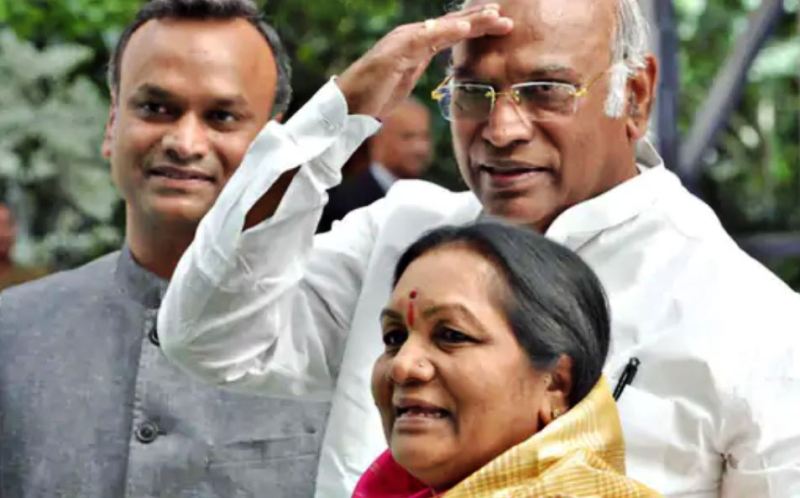The political turbulence unfolding in Karnataka is neither new nor unexpected. It is a predictable consequence of Congress’s internal contradictions—an organization that has long struggled to balance competing ambitions, high-command interference, and ideological hollowness. The current standoff between Chief Minister Siddaramaiah and his deputy D.K. Shivakumar is just the latest chapter in a party where power is rarely a matter of merit or electoral credibility, but of proximity to the Gandhi family.
When the Congress returned to power in Karnataka in 2023, ousting the BJP, the leadership question was left deliberately ambiguous. Siddaramaiah, the seasoned warhorse, and Shivakumar, the party’s state president and principal fundraiser, were both contenders for the top post. Reports suggested an informal understanding—brokered by the high command—that Siddaramaiah would serve as CM for the first half of the five-year term, and Shivakumar would take over midway. Yet, as is typical in the Congress culture, this deal was never formalized publicly. The Gandhis—Sonia, Rahul, and now Priyanka—kept it opaque, retaining the option to play kingmaker again when the time came.
That time is now.
As Siddaramaiah nears the two-and-a-half-year mark in office, murmurs from the Shivakumar camp have grown louder. His supporters, emboldened by what they believe was a firm understanding, are airing demands for a leadership change. However, Shivakumar himself has adopted a cautious approach. Why? Because the ground reality is politically and economically grim.
The Congress government in Karnataka is struggling. Despite riding to power on the back of its six ‘guarantees’—populist welfare schemes—implementation has been patchy at best. Fiscal pressure is mounting, with the state government openly admitting its inability to fund new infrastructure projects. The treasury is strained, and the opposition is preparing to capitalize on growing anti-incumbency. In this backdrop, Shivakumar knows that taking over the reins now would mean inheriting a crumbling edifice. Even worse, it would give the impression of political greed at a time when governance is floundering.
Adding to his troubles is the looming threat of central investigative agencies. Shivakumar continues to face serious money laundering charges. A change of guard could invite fresh scrutiny and further destabilize the Congress government. That explains his hesitation, even as his supporters remain unrelenting.
On the other side, Siddaramaiah too is not in a secure position. Allegations of corruption have begun surfacing during his tenure. Yet, unlike Shivakumar, he carries the advantage of incumbency and has little incentive to step aside willingly.

What complicates the matter further is the quiet ambition of another player: Mallikarjun Kharge. The Congress president may appear neutral, but those familiar with the party’s internal dynamics understand that Kharge has stakes too. His son, Priyank Kharge, is already a minister in the state cabinet. Should the Siddaramaiah-Shivakumar tussle intensify, Kharge Jr. could emerge as a “consensus candidate”—an old Congress trick used time and again to replace warring satraps with someone more pliable to the high command.
This playbook isn’t new. Over decades, the Gandhi family has deliberately fostered internal rivalries only to swoop in with a third option—loyal to the throne, not the grassroots. Whether in Punjab, Rajasthan, or earlier in Madhya Pradesh, the pattern is unmistakable.

Contrast this with the BJP or even regional parties like the DMK or TMC, where leadership questions are resolved either through ideology or family hierarchy, but rarely with such deliberate ambiguity. The BJP, for all its flaws, remains more disciplined and guided by a coherent ideological compass rooted in the Sangh Parivar. Even regional dynasties like the YSRCP or RJD suffer power feuds, but those are largely confined within family circles and settled internally.
In Congress, factionalism is not just tolerated—it’s weaponized by the high command. Leaders are kept perpetually insecure, and loyalty to the Gandhis outweighs loyalty to governance or the people’s mandate.
As the Karnataka pot continues to boil, what remains to be seen is not whether a change will happen—but who the Gandhis will eventually anoint. Whether Siddaramaiah survives, Shivakumar takes over, or a Kharge 2.0 is launched, one thing is certain: the state’s governance will remain a casualty of Congress’s internal power games.
Until then, the people of Karnataka can only watch as yet another political drama plays out—scripted in Delhi, enacted in Bengaluru.




